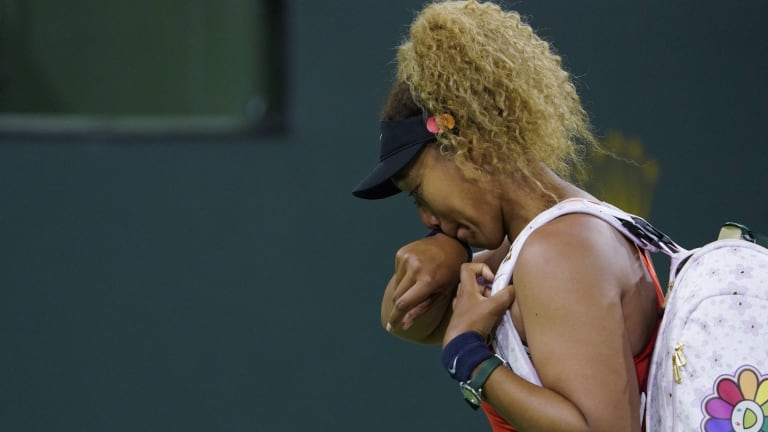Indian Wells, USA
Naomi Osaka deserves support in finding a comfort zone on tour, unclear if it can be done on her terms
By Mar 14, 2022Indian Wells, USA
Mackenzie McDonald is paying the college tennis experience forward with a new fund
By Mar 17, 2025Indian Wells, USA
Mirra Andreeva and Jack Draper win breakthrough titles at Indian Wells: What did we just witness?
By Mar 17, 2025Indian Wells, USA
Jack Draper's run through Indian Wells concludes with his first ATP Masters 1000 title
By Mar 16, 2025Indian Wells, USA
Holger Rune vs. Jack Draper: Where to Watch, Indian Wells Preview, Betting Odds
By Mar 16, 2025Indian Wells, USA
Holger Rune reaches first Indian Wells final over Daniil Medvedev
By Mar 15, 2025Indian Wells, USA
Mirra Andreeva vs. Aryna Sabalenka: Where to Watch, Indian Wells Preview, Betting Odds
By Mar 15, 2025Indian Wells, USA
Mirra Andreeva, 17, advances to Indian Wells final, beating Iga Swiatek in chilly conditions
By Mar 15, 2025Indian Wells, USA
Ruthless Aryna Sabalenka storms past Madison Keys, 6-0, 6-1, in semifinals of Indian Wells
By Mar 15, 2025Indian Wells, USA
Carlos Alcaraz vs. Jack Draper: Where to Watch, Indian Wells Preview, Betting Odds
By Mar 15, 2025Indian Wells, USA
Naomi Osaka deserves support in finding a comfort zone on tour, unclear if it can be done on her terms
One has to be a real moron to endorse heckling, but taunting athletes is a habit likely as old as competition itself.
Published Mar 14, 2022
Advertising
Advertising
Advertising

Osaka was playing her first tournament since January's Australian Open.
© Copyright 2022 The Associated Press. All rights reserved.
Advertising

Download the Tennis.com app on your IOS or Android device today!